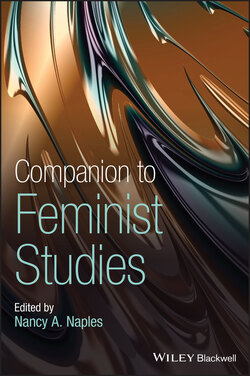Читать книгу Companion to Feminist Studies - Группа авторов - Страница 36
Early Tenets
ОглавлениеThe writings of Karl Marx and Friedrich Engels created a new continent of thought about social life. Marx demonstrated how capital was able to grow by the exploitation of labor. With the rise of industrial capitalism in the beginning of the nineteenth century, workers, with no other property except their own power to work, had to resign themselves to working for capitalists. But when the exhausted workers went back home from the factories and the fields, they had to resuscitate themselves with their meager pay packets through unpaid reproductive labor at home. In The German Ideology (1845–1846), Marx and Engels described the misperception of workers' relations of reproduction. “The production of life, both of one's own in labor and of fresh life in procreation, now appears as a double relationship: on the one hand as a natural, on the other as a social relationship” (Marx and Engels 1964, p. 41). Reproductive labor had social forms that organized it, such as marriage and the family; but the labor itself was seen as biological. Women who performed this labor were also naturalized, as biological beings unable to effect changes in these social orders.
Marxism historicized social reproduction as labor, arguing that it exists within the relations of capitalism. Behind every capitalist social relation – that of the capitalist and the worker – lay another buried social relation, that of the household – between husband and wife. In the newly privatized household, as a result of inherited gender roles, women did the bulk of all reproductive labor under the control of men. Women, therefore, reproduced workers – including themselves – to return the next day ready to sell their labor power to the capitalist. The use value of this reproductive labor is the workers' daily and generational renewal. The exchange value of women's work in the family, however, is nothing at all.
The Marxist definition of a class society under capitalism describes how one class controls the means to produce goods. Wealth accumulates to this small group of owners because they hold what Marx calls the means of production – the elements that harness profit, including intellectual rights, labor, land, natural resources, raw materials, markets, and systems of distribution. All of these facets are privatized, all of them owned, since private property anchors a class society. In addition, that ownership class dictates how everyone else can use these resources. Those that own the means of production hoard for themselves the surplus value (profit) from the production of commodities, those socially useful goods that are bought and sold for the reproduction of life. In capitalism, workers receive wages, capitalists take the profit from their work, and those who reproduce daily and generational life receive no recognition for their labor, in wages or in social value. As subjects in capitalism, they are rendered invisible or a burden to the system.
Marxist feminism explores how gender ideologies of femininity and masculinity structure production in capitalism. It challenges the primacy of capitalist value to determine social values, both the exchange value in wages and the surplus value of profit by making the use value of reproductive labor visible. Today, Marxist feminism grapples with two central questions: how is the political economy gendered in late capitalism? And, how does the social reproduction of people and communities renew capitalism, rather than support anticapitalist praxis? The first question addresses imperialism today, what Lenin famously called the highest stage of capitalism. As a system based on profit over people's needs, capitalism constantly seeks new markets for its goods, what Marx calls commodities, due to the crisis of overproduction – making more things than people can buy. Imperialism refers to the aggressive solution to this crisis that creates new markets and new pools of waged workers to increase the profitability for the owning classes of capitalism. Marxist feminists argue that imperialism in the twentieth and twenty‐first century relies not simply on women to solve the crisis of overproduction (as workers, consumers or both), but also on oppressive ideologies of gender. Imperialism captures new markets through the mobilization of extant ideologies of gender oppression to force new workers into waged work, to decrease wages and working conditions, and to exploit previously untapped resources.
